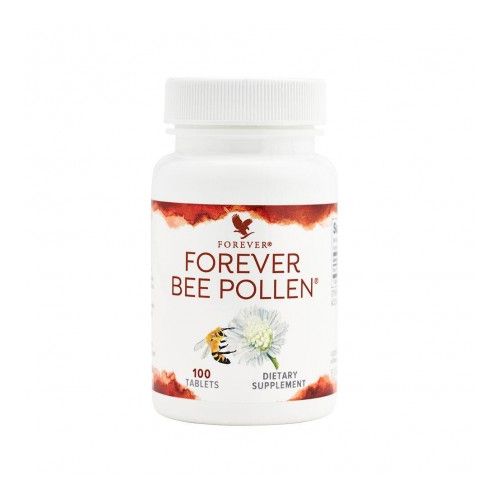
Forever Pollen 100 comprimés
Pollen is produced by the stamens of flowers (the stamen is the male organ of reproduction in plants). All higher plant species, i.e. those that produce flowers, no matter how small, produce pollen.
Pollen is made up of microscopic elements, the pollen grains, each measuring 20 to 40 microns (0.02 mm to 0.04 mm). As they gather nectar from flowers to transform into honey, bees accumulate pollen on their hind legs. They form small pellets which they bring back to the hive to use as food. In addition to pollen from various plant species, these pellets also contain enzymes. The bees produce these enzymes to dissolve the solid envelope that encloses the nutrients inside each tiny pollen grain.
Bee pollen is made up of 30-55% carbohydrates (sugars), 25-30% protides (proteins and free amino acids), 1-20% lipids (fats) and the remainder vitamins (mainly group B) and minerals (calcium, chlorine, copper, iron, magnesium, manganese, phosphorus, potassium, silicon, sulfur). It also contains small quantities of antioxidants and immunostimulant substances.





